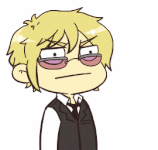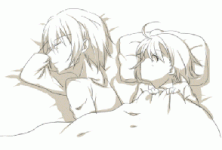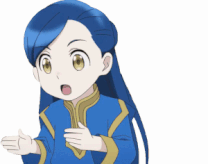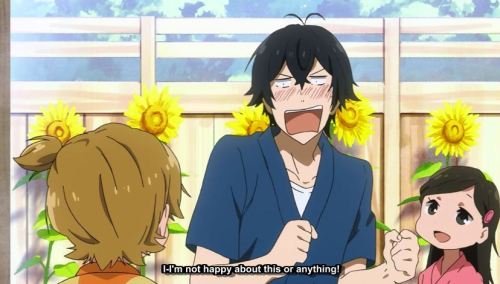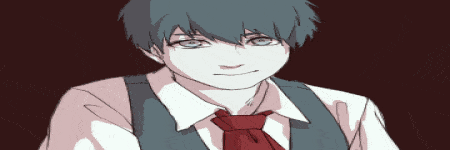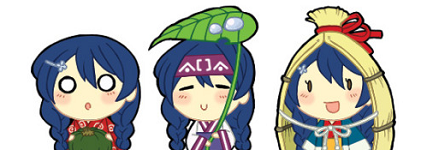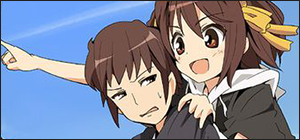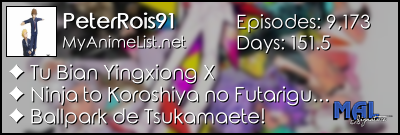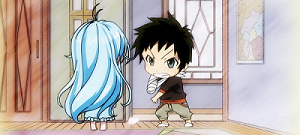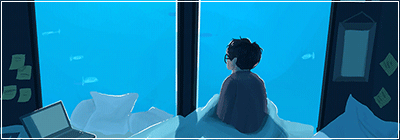Oh, no! Sensei, please don't leave :c I teared up a little bit at the end, which was pretty embarrassing because I was in the middle of class.
Yet regardless of that terrible scene of the end, I thought this was one of the better episodes! Seishuu knows that he's going to leave and that his chance to enjoy the innocence and happiness on the island is running out of time, so he goes ahead and goes with all the experiences. I think the most profound part of this episode is that here, he's branching out to try all the things that he wouldn't have initially done when he first moved to the island. He helps the villagers build a wall, without deeply questioning their motives, and freely associates with them. The villagers reciprocate with affection and kindness. Additionally, he, albeit reluctantly, agrees to go to the festival with Naru and Hina, even offering to tie their yukatas and participating in all the games that he would have deemed parochial and childish when he first moved to the island, but now embraces as unique and part of the childhood which he feels he lost in his calligraphy.
And it's very true. Often the prodigies in subjects- whether art, academics, or even something else- miss out on key parts of their childhoods because they're too busy training for events and concentrating on their skills. Sometimes, we all need to take a step back and relax, and enjoy what others may consider to be the vie quotidienne, but what the people who have never experienced them might consider unique, like that missing puzzle piece. Finally, the prodigies have a chance to be ordinary. And honestly, sometimes that's what they want. Being exceptional in something can be incredibly stressful.
Today, I wrote an essay on whether or not we need experiences to spark creativity. Though my thesis was that we do not need experiences, I'd like to alter it- we need experiences to spark creativity, but they do not need to be unique and they can be what others consider ordinary or even mundane. Oh, how I wish I could go back and rewrite that essay, but instead I'll apply it to Barakamon. And quite interestingly, it was taking all of my restraint not to make up a "famous Japanese calligrapher from ancient times named Handa Seishuu" to use as a source in my essay, hehe. Handa has experienced things that people who live "routine" lives can only dream of- being famous, recognized on the world stage, having a life devoted to what he loves. However, on the other hand, Handa has not participated in activities which the common people might believe to be integral parts of their lives. That's why he displays such enthusiasm in playing the children's games and eating festival snacks. Even though he has tasted what many of us aspire to, he hadn't yet, until he moved to the island, been able to experience what many of us think of as common things that everyone would probably have gone through. It can be as simple as shooting a basketball, for example. Since Handa's entire life has been centered on writing, it's obvious that he probably would only have read about playing basketball, but had never done it himself. Therefore, the fact that he cannot actually shoot a basketball is not just a point of embarrassment, it's a bit of disappointment to him that the truth is, reading can only account for so many actual experiences. Vicarious reactions are quite limited.
Handa is starting to discover those parts of his life that he missed out on. Yet living on the island provides more benefits, at least for him, than living in the city, because he is able to experience "childhood" and continue on his path of calligraphy fame at the same time. In the city, he will constantly be pressured to perform better, without getting a chance to relax and really enjoy the ride. The village gives him a slower pace. There are no deadlines. There are no requirements except an open mind, and even that isn't mandatory for anyone; it's something that develops over time for Handa. I'm hoping he'll realize this, it would be a pity if he trapped himself back in the city, like a bird locked within a cage. |


